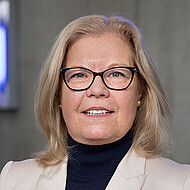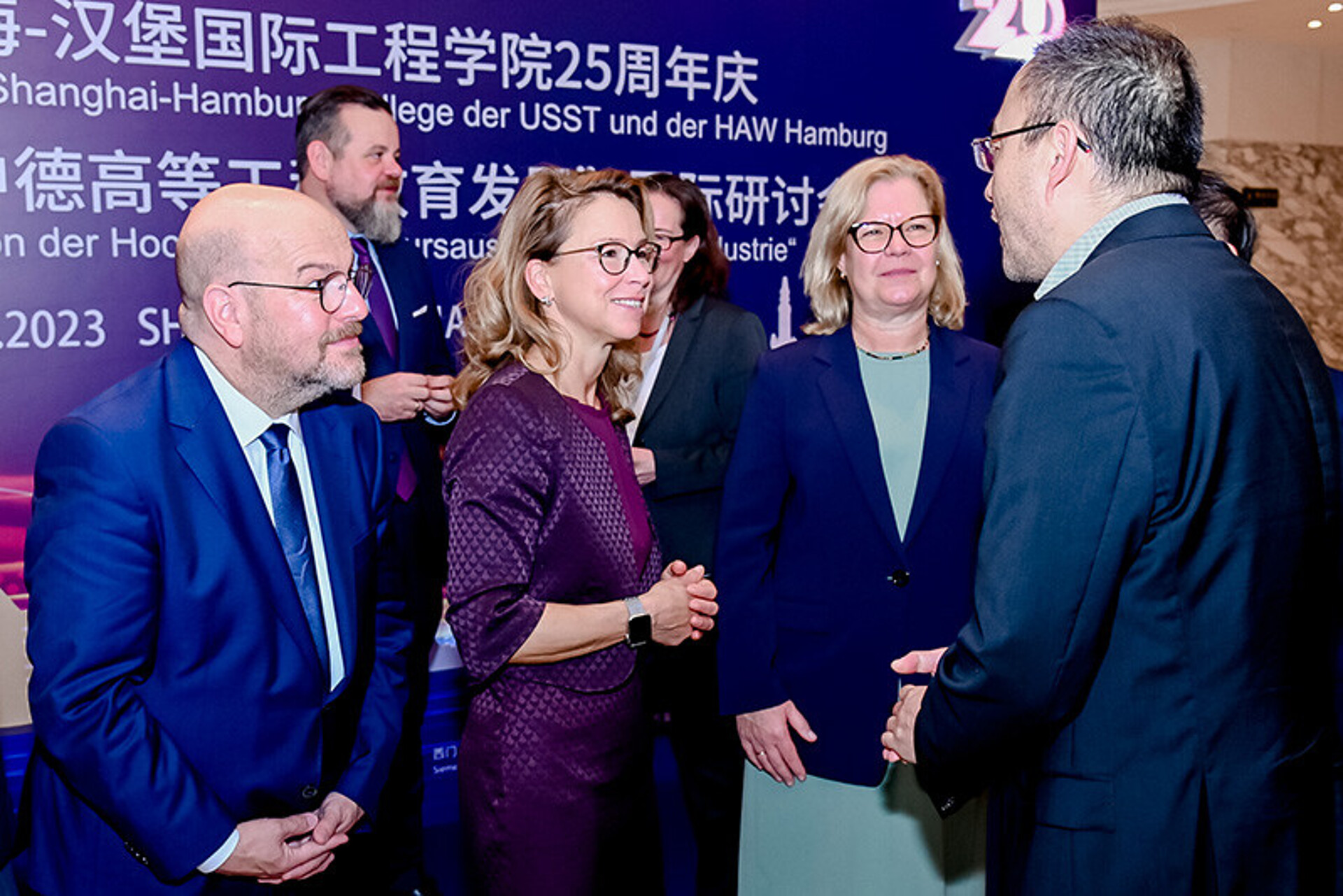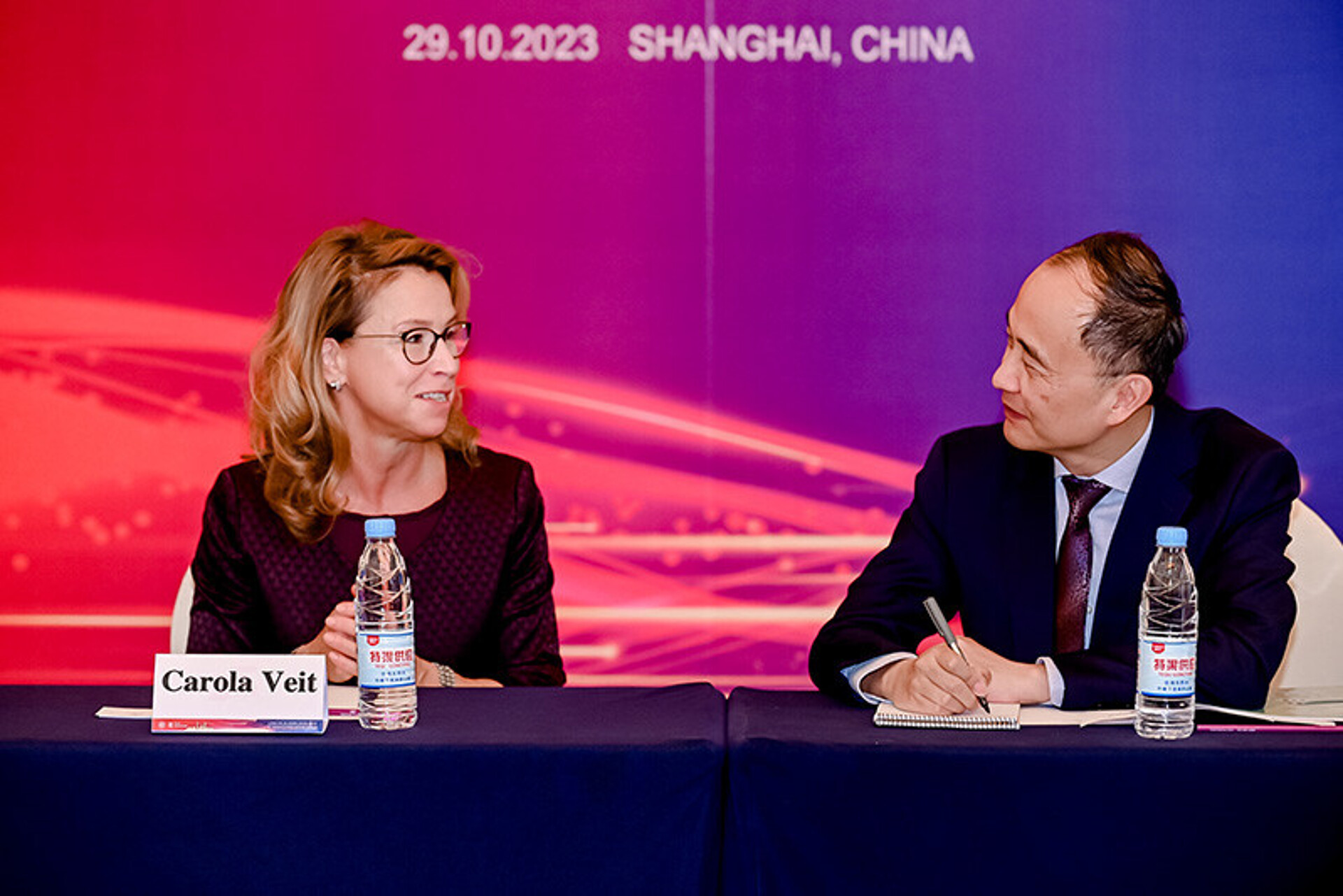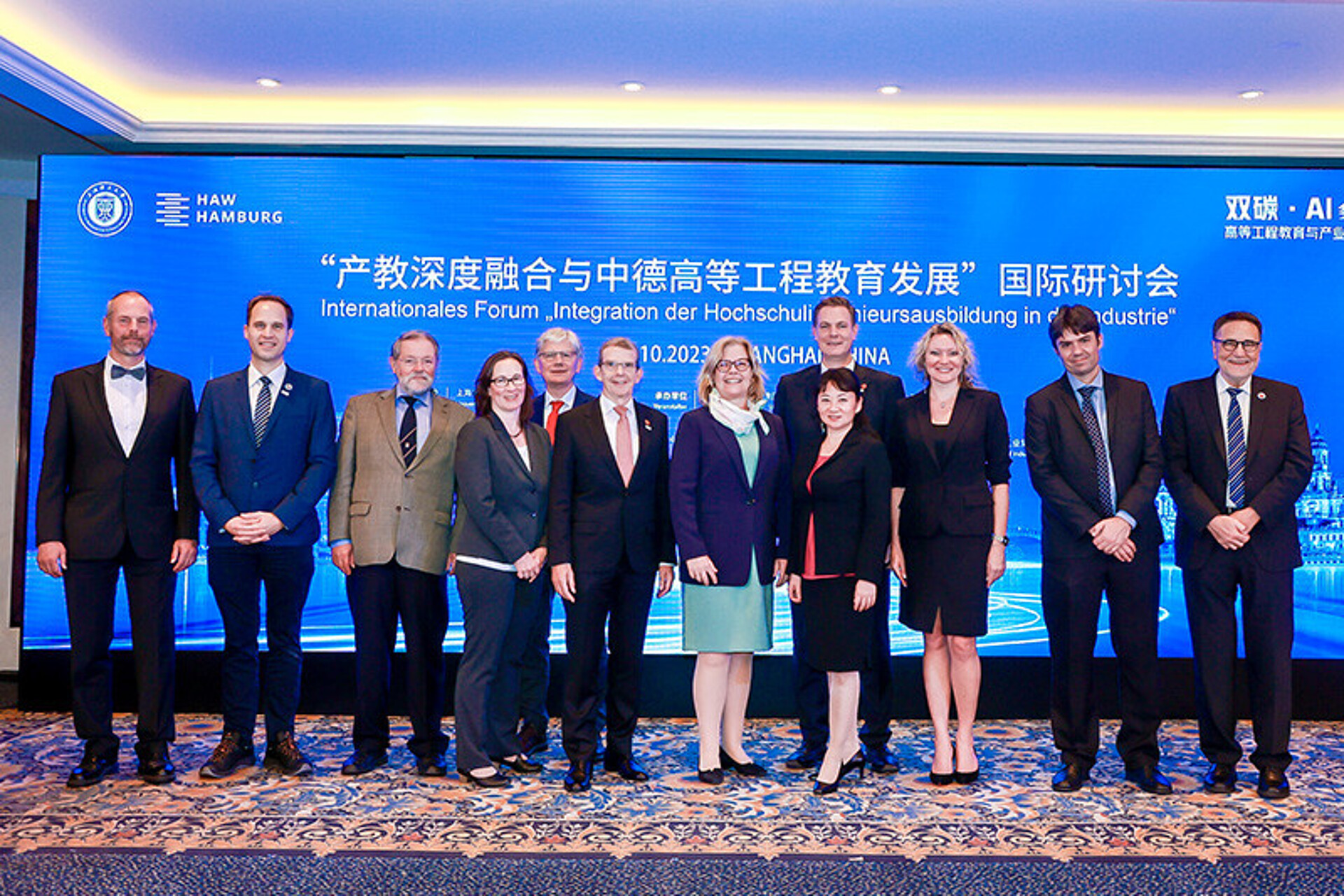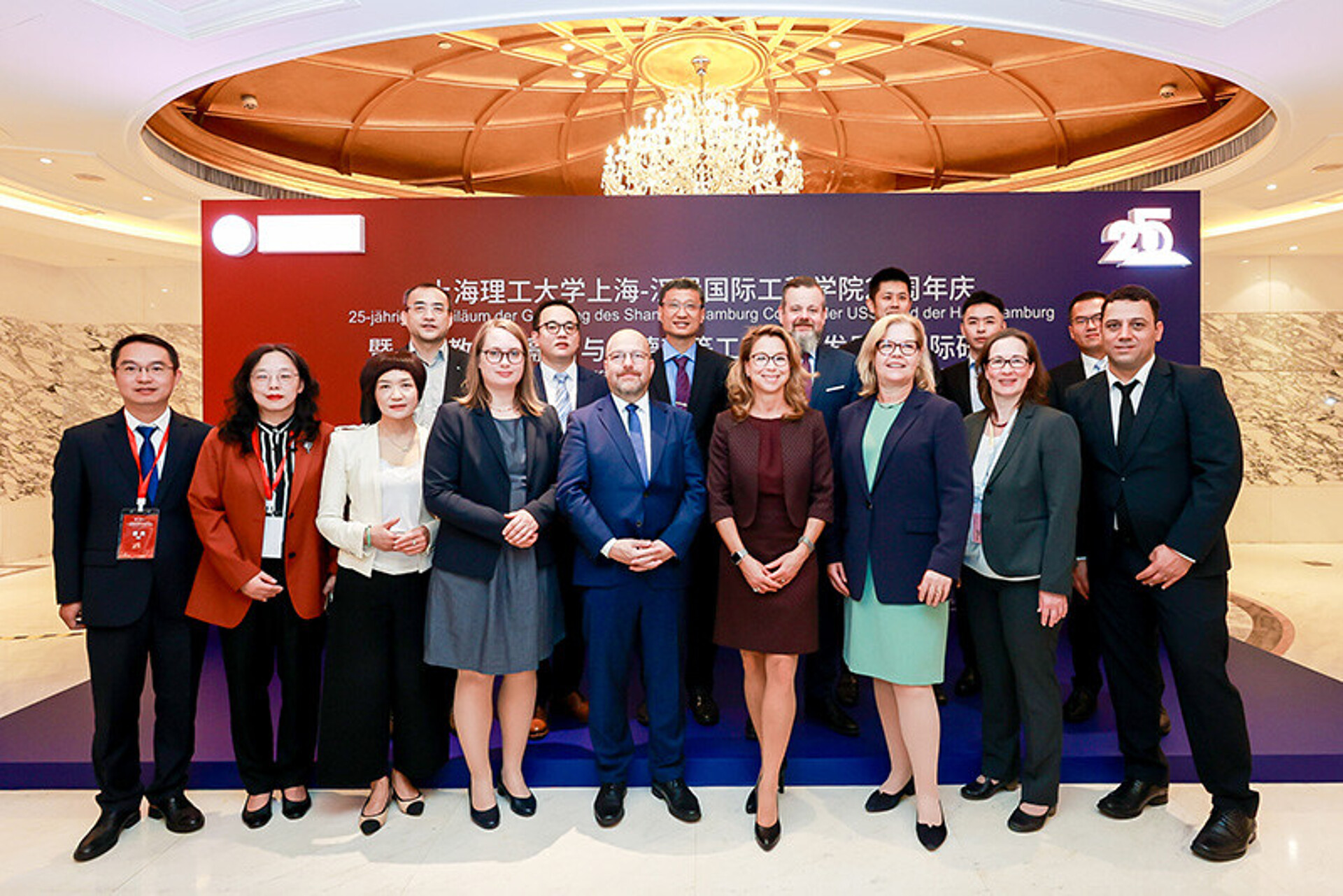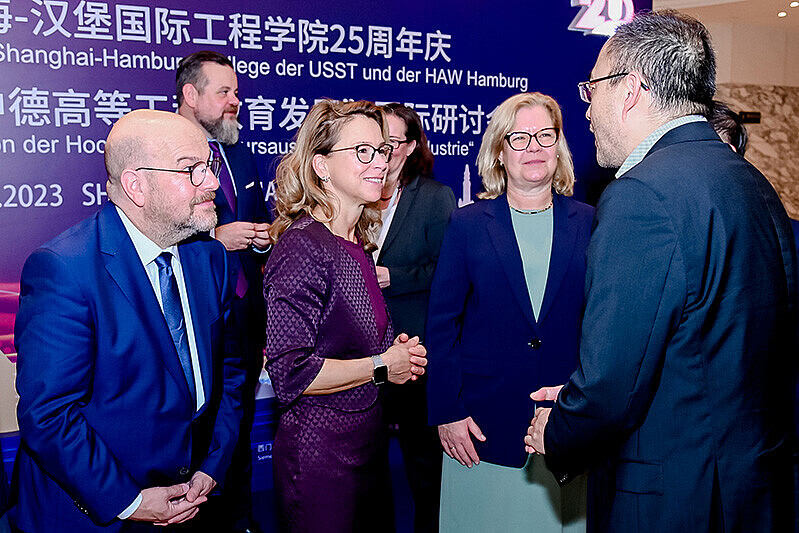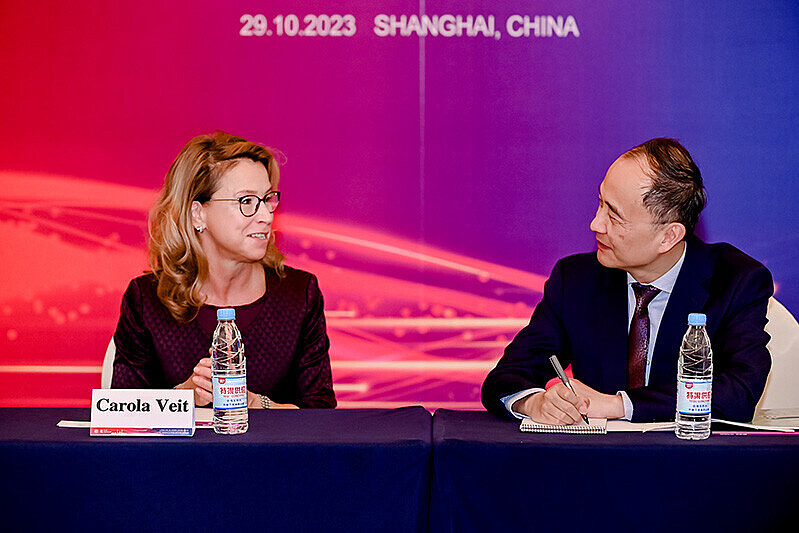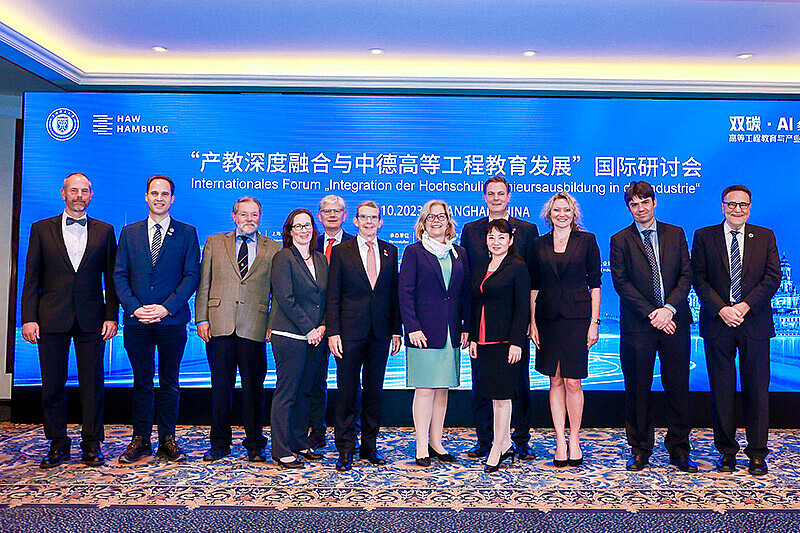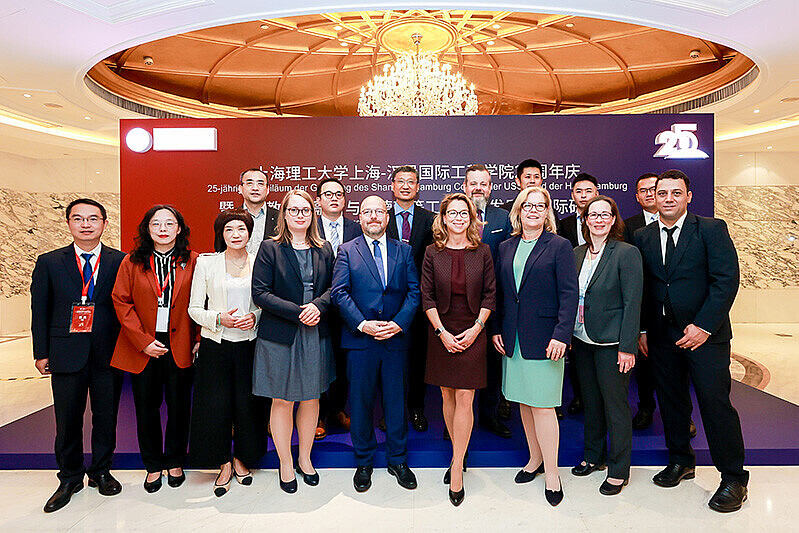Working as an instructor in China
Since 1999, professors from HAW Hamburg have taught 16 hours per week for eight weeks in Shanghai. They teach both subject-related material as well as specialised German terminology in the areas of Electrical Engineering, Mechanical Engineering and Business. One of the professors teaching in Shanghai this semester is Prof. Dr. Henner Gärtner, who is also the subject-area coordinator for Mechanical Engineering. He says that in addition to the course materials, he also teaches students indirectly about German culture. 'When I go into the lecture hall, 45 Chinese students enthusiastically call out "moin moin" ["morning" in Hamburg's local dialect]!', says Gärtner of his everyday life at the college. Still, differences in the mentality around learning cannot simply be ignored: 'For example, I expect my Chinese students to give a presentation where they do not just read from a text.' However, the concept of a presentation doesn't exist in China, he says, so the students have never had to speak spontaneously in front of an audience. 'But speaking in front of others is as much a part of German culture as gummy bears, which I reward the students with after the presentation,' says Gärtner. 'It's important to me to teach this too.'
Education at the college
Shanghai-Hamburg College produces highly qualified Chinese professionals. The advantage of their degree is that when they graduate they not only have specialist knowledge but can also speak German and have acquired intercultural skills. The degree courses are bilingual. In the first year the students learn the German language. One-third of the subject-specific instruction in the second and third years of study is then carried out by professors and instructors from HAW Hamburg in German.
In 2020, the number of students admitted to the programme was increased to 125 people annually. Additionally, a semester abroad at HAW Hamburg was integrated into the engineering degree courses' curriculum. Nine Chinese students also complete an internship semester in Hamburg each year, and six German students travel to Shanghai for an internship semester or to complete their Bachelor's thesis.
'After graduation, our Chinese graduates work at companies that have a connection to Germany and operate worldwide,' says Gärtner. 'Many of them also use their double degree to pursue a Master's degree in Germany.' Some of them return to Shanghai and work as so-called liaisons to Germany. A portion of the graduates stay in Germany for doctoral studies, and some even settle in Germany, according to the professor.
As part of the trip, the two partner universities spoke about possiblities for further development: 'We talked in particular about having more reciprocity in the partnership,' says Ines Tobis. She explains what she means by this: 'The goal, for example, is that more HAW Hamburg students complete a stay abroad at Shanghai-Hamburg College. The college is also planning to offer a summer school for international students for the first time next year, which our students could attend.' In addition to a Chinese language course, company visits and field trips are also being considered in order to give students a comprehensive picture of Chinese culture. 'This is intended to increase students' China skills in accordance with the federal government's new China strategy,' says Tobis.
The college's success is evident not only in the two partners' big plans, but also in minor interactions: 'At the 25-year celebration we met up again with graduates from previous years who are now working as established leaders at companies like Philips, Airbus, Siemens, Bosch and ZF Friedrichshafen and can tell you about it in fluent German,' says Prof. Gärtner proudly.
In Germany for the first time
Qitong Lu is one of the students who recently travelled to Hamburg from Shanghai to study at HAW Hamburg. He likes the Hanseatic city, and the architecture impressed him from the very first moment: 'When I left the airport, I immediately noticed the different architectural styles,' he says. 'In real life they're even more impressive.'
And the cashiers at the supermarket are friendly, he says: 'When I go shopping, they greet me with "moin moin" and they say "tschüss" [bye]'. He definitely notices differences in teaching and learning mentalities: 'Attendance is not as important to instructors in Germany as it is for us in Shanghai. If we don't go to classes there, it impacts our grades,' he says. 'And in Germany there's more freedom around how to study and learn: we ourselves are responsible for whether or not we do our homework.' This is new for him. Instructors here also place more emphasis on the work in the labs and on writing lab reports. 'I can understand that because it helps us students bring theory and practice together,' says Lu. 'I wish Shanghai-Hamburg College all the best on its twenty-fifth birthday and hope that the cooperation and friendship between HAW Hamburg and USST continue for many years!'
Prof. Dr. Michael Röther also advocates for this: 'We are all currently being confronted with significant global challenges. For example, we are seeing an initial hesitancy on the part of companies in Hamburg to take on Chinese students for an internship semester. The same is true for German students in Shanghai. This is why we should continue to work actively on this pivotal project with perseverance and commitment.'
Text: Tiziana Hiller

